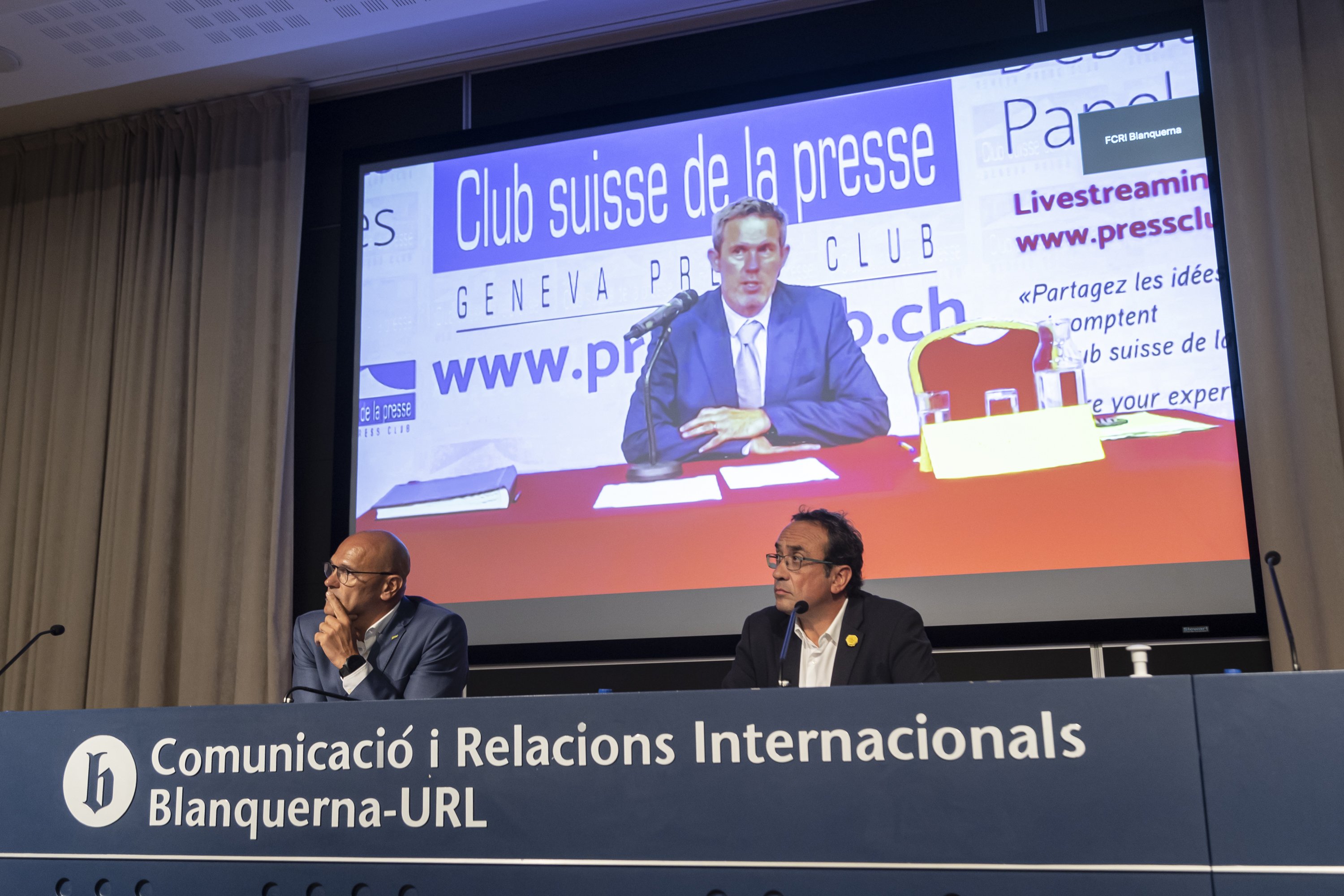This week's resolution by the UN Human Rights Committee, which admonished Spain for violating the political rights of the Catalan leaders accused over the 2017 independence referendum, is the precursor of future victories at international level. That is the view of the Catalan independence movement, expressed this Friday at a press conference held simultaneously in Barcelona and Geneva, where the UN Human Rights body is headquartered. The four former Catalan ministers who took the case to the UN - Oriol Junqueras, Raül Romeva, Josep Rull and Jordi Turull - do not have much confidence that the Spanish state will apply the opinion, conveying skepticism at the possibility. But they do set their sights on the European Court of Justice (ECJ) and the European Court of Human Rights (ECHR) . Both the former ministers and their lawyers see the UN ruling as good "legal ammunition" to win. The lawyers, meanwhile, avoided giving any assessment of whether the case is comparable to that of Laura Borràs.
From Barcelona, the former Catalan foreign minister, Raül Romeva, affirmed that the resolution "is no surprise" for them because they already knew that when they left Spain they would find "what we have not found in the Spanish state: law and justice". Romeva stressed that in the resolution there has been "explicit recognition" that human and fundamental rights have been violated. And now what, the ERC politician was asked? "We have a case open at the European Court of Human Rights . The UN resolution is a fundamental file, which will be key to showing that the ECHR case can open a path. It is not just anecdotic. It goes to the essence of what we have always said", he justified. He urged the Spanish government to react to the opinion with an amnesty for those prosecuted in connection with the independence process, "the only possible political response".
For his part, former Catalan territorial minister Josep Rull stated that with the suspension of the four men as MPs, "we witnessed the assassination of Montesquieu live" and that it was not an anecdote, but a "systemic failure of the legal, political and democratic system of the Spanish state". In this respect, the former minister also saw it as a political but above all a legal and juridical victory: "It is an admonition to the entirety of the leadership of the Spanish state. I am not very optimistic that the state will make any move; we already have precedents. But we will have good legal ammunition for the cases we have open, at the ECJ and at the European Court of Human Rights".
Nico Krisch, the lawyer who brought the case before the United Nations Human Rights Committee, spoke at the press conference from Geneva. After reviewing the facts and the violation of the rights of his clients in chronological order, the lawyer warned that the Spanish state must make the necessary reforms to prevent the case from being repeated in the future. "If the Spanish state does not change, international organs will proceed to take decisions similar [to the UN Committee's]", he warned. "Every step of non-compliance puts Spain outside the family of liberal democracies," he concluded.

